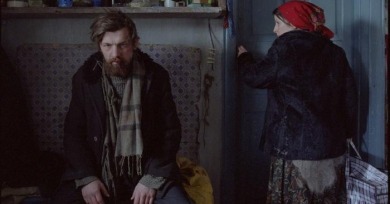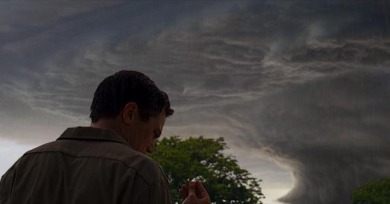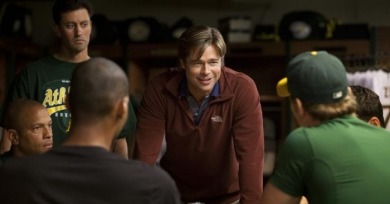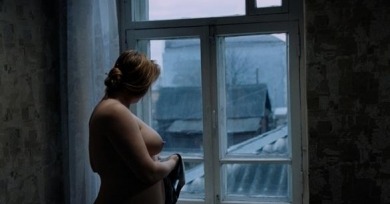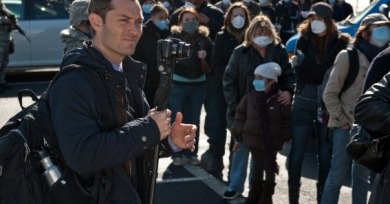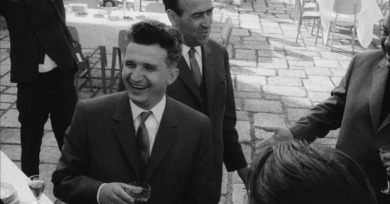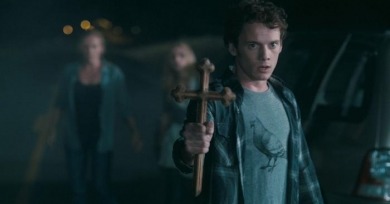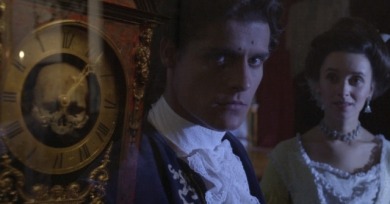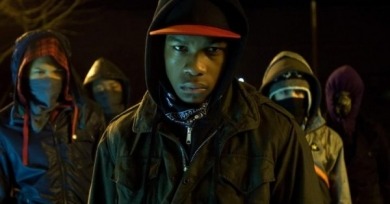Reviews
The fact that such a heavily allegorical, narratively tricky film would incite anger is a testament to the inherent power of Loznitsa’s imagery; the cumulative impact of My Joy’s many jarring episodes announces him as a potentially major filmmaker.
In Take Shelter, Jeff Nichols’s follow-up to his excellent 2007 drama Shotgun Stories, all the protagonist’s anxieties condense in the form of a storm cloud.
As far as big studio dramas are concerned, Moneyball functions well—it’s far too long but goes down easy, is well acted and stylishly shot. But it’s also a missed opportunity.
If Weekend felt at all like a treatise on the State of Being Gay Now the easygoing charm that makes it so special would have been obscured.
There’s a voiceover buzzing through Alexei Fedorchenko’s brief, impressionistic, and sentimental Silent Souls, and it’s eager to tell you how to absorb what you’re watching.
That patina of you-are-there atmospherics does little to sell the film’s stabs at state-of-the-union relevance.
The Autobiography of Nicolae Ceauşescu—a thrilling three-hour whirlwind through tumultuous late twentieth-century Romanian history that focuses exclusively on the deposed president and tyrant—reminds us that the public face is often all we are privileged to see.
Our Idiot Brother presents us with a world in which life is out of balance; to put it in New Age-y terms that Ned might use, many of the female characters embrace too much yang, or masculine energy, and Ned has too much yin, or female energy.
Sarah Kazemy and Nikohl Boosheri shine brightly as Shireen and Atie, the bold teenage heroines of the film. There’s a cinematic symbiosis at play between the two actresses and Keshavarz, herself a first-time director.
Colin Farrell, first appearing on his front lawn in a seductive glower and matching black tank-top, is a vamp of the highest order—the role gives the Irishman a chance to strut his sundry stuff; his sexy swagger and comic chops are both on full view.
It’s clear that Ruiz wishes to envelop the viewer in lush, traditional storytelling; this being wily Ruiz, though, Mysteries of Lisbon foregrounds that storytelling to a nearly absurd degree.
Writer-director-editor-star Evan Glodell’s debut film Bellflower starts in media res. We’re treated, within its first thirty seconds, to a fragmented blend of flipped cars, backwards footage, and slow motion.
Cornish's achievement is to craft a whip-crack B-movie entertainment that's built for speed—everything in this alien-invasion thriller happens before you expect it to—but that also gets pretty good sociopolitical mileage to the gallon.
When discussing Miranda July’s second feature film, The Future, many writers have fixated on the relationship between the artist’s New Age-y pixie persona and her art, weighing in on how twee and precious her latest effort is. Relevant, perhaps, but not entirely fair to her work, which has matured significantly over time.
